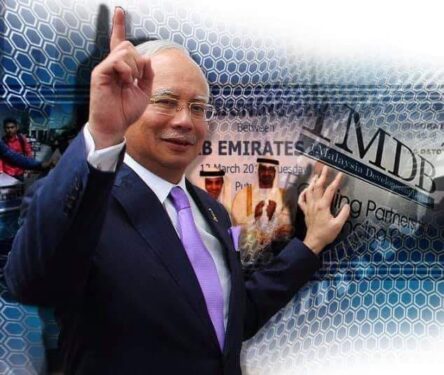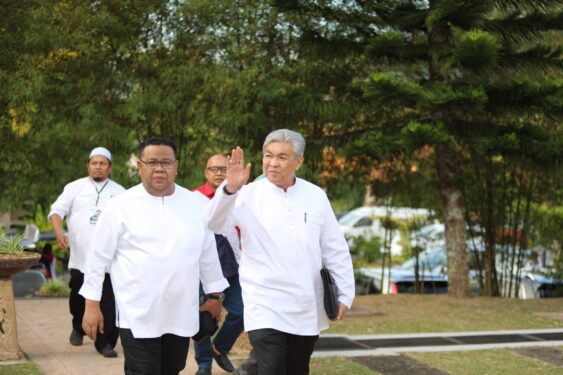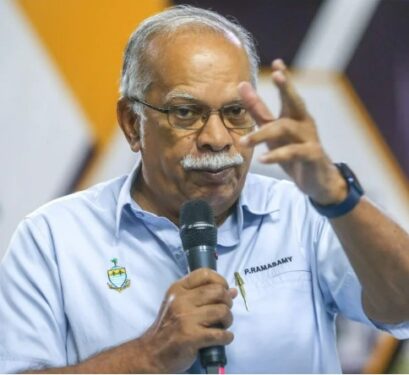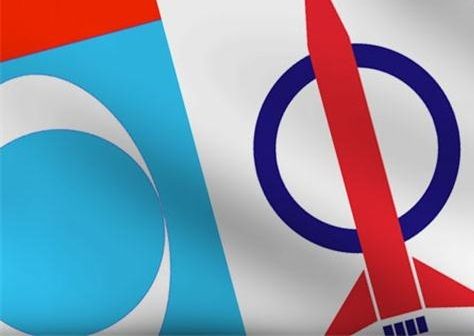IT IS extremely disappointing to realise that political parties such as the DAP and PKR are reticent in commenting on the Pardons Board decision that reduced the sentence of incarcerated former prime minister (PM) Datuk Seri Najib Razak on the basis of 50:75 formula.
While DAP secretary-general Anthony Loke Siew Fook requested for “cool heads” to prevail over the Pardons Board decision, PKR information chief Fahmi Fadzil asked for the decision to be respected.
In fact, it was Fahmi who warned another PKR leader Hassan Karim (Pasir Gudang MP) who called for the replacement of the present UMNO president Datuk Seri Ahmad Zahid Hamidi.
Not too long ago, these two prominent multi-racial political parties – imbued with the pressing need for reforms – had declared a war on corruption and financial malfeasance.
By joining with twice former PM Tun Dr Mahathir Mohamad, they went against Najib for his involvement in the “mother of all corruption” – the IMDB (1Malaysia Development Bhd) financial scandal.
It was Najib’s involvement in this scandal that brought about the defeat of the Barisan Nasional (BN) in the 14th General Election (GE14) and the rise of Pakatan Harapan (PH) which lasted 22 months.

Politicising pardon exercise
If the Pardons Board had followed the laws on the grant of pardon, then it would be understandable for these two political parties to mark silence as a sign of respect.
The rudimentary rules such as the person seeking pardon must have served two-third of the prison time, must not have other pending criminal cases and others were not adhered to by the Pardons Board.
As far as DAP and PKR are concerned, their perspective on corruption depends on whether they are in power or not. While in the opposition, the war against corruption was the weapon of DAP and PKR.
But once in power, corruption seems to be tolerated and condoned. Otherwise, it will be difficult to explain the acquiescence of these two parties – the backbone of PH coalition – in going along with the discharge not amounting to acquittal (DNAA) granted to UMNO president Zahid.

The public should not be taken for a ride by saying that PM Datuk Seri Anwar Ibrahim was not involved in the decision to grant the DNAA in favour of Zahid. Similarly, the reduction of Najib’s sentence cannot be defended in saying that Anwar had no knowledge or interfered in the decision.
Interestingly, the reduction of Najib’s sentence has not been accepted by his family and a segment of UMNO members. They want nothing less than a full pardon. Hence, there is belief that the reduction of Najib’s sentence is just a prelude for a full pardon in the near future.
Impact on judiciary
It is not about the reduction of Najib’s sentence or even the prospect of a full pardon. It is about the nature and implications of the decision on the judicial system in the country.
If Najib’s sentence can be reduced having only served 17 months, then where is the two-thirds period cut off point?
What about the ordinary people who have been languishing in prisons waiting for pardon? We have been told from young that everybody is equal before the law but now Najib seems more equal than others even though he was convicted.

I really don’t understand why the MACC (Malaysian Anti-Corruption Commission) was asked to investigate former finance minister Tun Daim Zainuddin and the sons of Dr Mahathir.
Was such an investigative exercise to counter-balance the reduction of Najib’s sentence? Did the government go against the former leaders just to set the stage for Najib’s sentence reduction or even the prospect for his full pardon?
Why all the rhetoric about the war against corruption? Why is the Anwar government bending over backwards to appease UMNO leaders? Wasn’t the grant of DNAA not sufficient to mollify the UMNO members?
As I have said before, UMNO is the albatross around the neck of the Madani government. The longer UMNO stays within the fold of the government, eradication of corruption will take the dimension of a joke.
Perhaps who knows, the price for UMNO’s support of the government to stay in power is that more corruption cases might be condoned and eventually neutralised. It serves no purpose to ask the present government for reforms and change when these are merely slogans for the attainment of political power. – Feb 5, 2024
Former DAP stalwart and Penang chief minister II Prof Ramasamy Palanisamy is chairman of the Urimai (United Rights of Malaysian Party) interim council.
The views expressed are solely of the author and do not necessarily reflect those of Focus M









